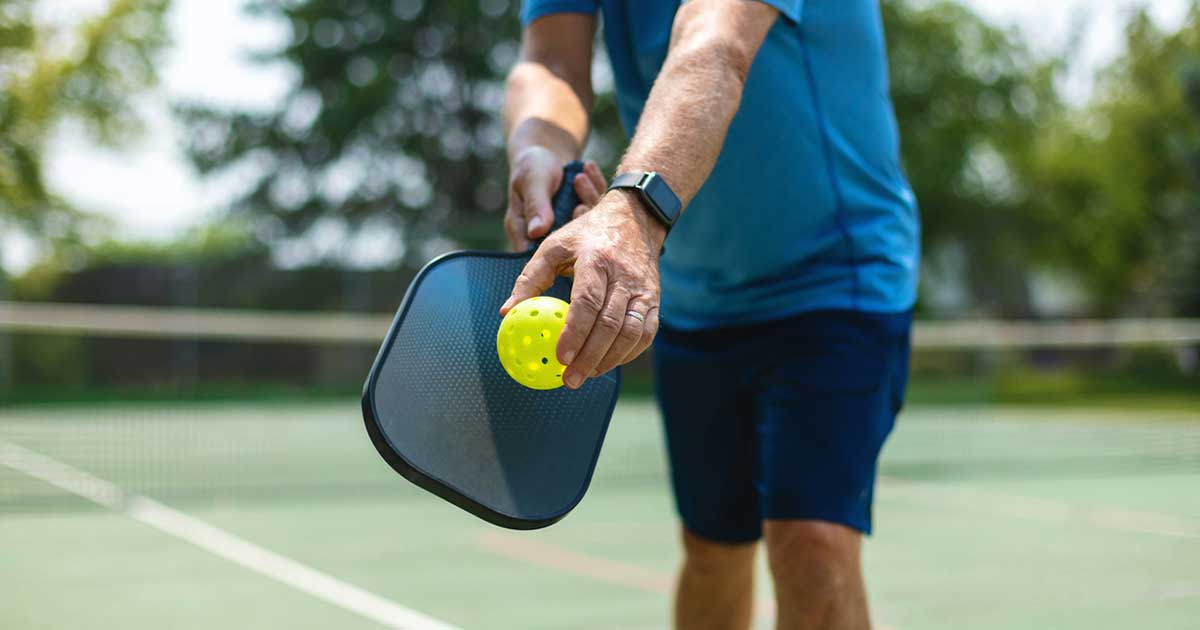Pickleball can be hard on joints, causing repetitive stress injuries, joint strain, muscle sprains and strains, and inflammation. The twisting, bending, reaching, and pivoting movements involved in pickleball can exacerbate existing conditions like arthritis.
However, compared to tennis, pickleball is generally easier on the joints due to the smaller courts, which means less distance to cover and gentler impact on the joints and muscles. Despite the potential impact on joints, pickleball is still considered a low-impact activity that can be enjoyed even by people with arthritis or joint pain.
It is important to take precautions and listen to your body to prevent injuries.
Understanding The Effects Of Pickleball On Joint Health
Pickleball may have an impact on joint health due to various factors. Repetitive stress injuries and joint strain can occur as a result of the twisting, bending, reaching, and pivoting movements involved in the game. Muscle sprains and strains are also possible due to the physical demands of pickleball.
Inflammation can be exacerbated by playing pickleball, especially for individuals with existing conditions such as arthritis. It is important to note that pickleball is considered to be less demanding on the joints compared to sports like tennis due to the smaller court size and shorter distances to cover.
However, it is still important to take precautions and listen to your body to avoid any potential joint-related issues while playing pickleball.
Comparing Pickleball And Tennis: Which Is Gentler On Joints?
Pickleball and tennis are both popular racquet sports, but when it comes to their impact on joints, pickleball tends to be gentler. One reason is the smaller courts in pickleball, which means less distance to cover and fewer explosive movements.
This reduced physical demand can be beneficial for those with joint issues or existing conditions like arthritis. In tennis, on the other hand, players often have to make quick sprints and powerful hits, placing more strain on the joints and muscles.
Additionally, the twisting, bending, reaching, and pivoting movements in pickleball can aggravate existing conditions and potentially lead to repetitive stress injuries. Overall, while any physical activity carries some risk, pickleball is generally considered to be less hard on the joints compared to tennis.
Managing Joint Pain In Pickleball: Tips For Prevention
Pickleball can be hard on joints due to the repetitive stress it puts on your body. The twisting, bending, reaching, and pivoting movements required in pickleball can cause joint strain, muscle sprains, and inflammation. If you already have existing conditions like arthritis, these movements can aggravate them further.
However, there are ways to manage joint pain and prevent injuries while playing pickleball. One way is by adjusting your technique and form to reduce unnecessary strain on your joints. Incorporating strength and flexibility training into your fitness routine can also help strengthen your joints and reduce the risk of injuries.
Additionally, using protective gear and equipment, such as knee pads and elbow braces, can provide extra support and cushioning for your joints. By taking these steps, you can continue enjoying pickleball while minimizing the impact on your joints.

Credit: www.hss.edu
Frequently Asked Questions For Is Pickleball Hard On Joints
Why Do My Joints Hurt After Pickleball?
Playing pickleball can cause joint pain due to repetitive stress injuries, joint strain, muscle sprains, and inflammation. The twisting, bending, reaching, and pivoting movements involved in pickleball can also aggravate existing conditions like arthritis. However, pickleball is generally gentler on the joints compared to tennis due to the smaller court size and less distance to cover.
It is possible to play pickleball even with arthritis, as it is a low-impact activity that doesn’t require excessive strength. However, players should be mindful of their movements and take precautions to prevent injuries.
Is Pickleball Easier On Joints Than Tennis?
Pickleball is easier on joints than tennis due to its smaller courts, which require less distance to cover and put less strain on the joints and muscles.
Can You Play Pickleball With Arthritis?
Yes, you can play pickleball with arthritis. It’s a low-impact activity that doesn’t require a lot of strength, making it suitable even if you have joint pain or hip replacements. Pickleball is a perfect match for arthritis.
Is Pickleball Hard On The Body?
Pickleball can cause joint strain, muscle sprains, and inflammation, but it is generally easier on the body compared to tennis.
Conclusion
While pickleball can be a fun and low-impact sport, it is important to be aware of the potential impact on your joints. The repetitive twisting, bending, reaching, and pivoting movements involved in pickleball can lead to joint strain, muscle sprains and strains, and inflammation.
It can also aggravate existing conditions such as arthritis. However, compared to sports like tennis, pickleball is generally easier on the joints due to the smaller courts and shorter distances to cover. It is possible to play pickleball even with arthritis or joint pain, as it is a low-impact activity that doesn’t require excessive strength.
However, it’s important to listen to your body and take appropriate measures to prevent injuries, such as stretching before playing and using proper form. Remember to prioritize the health and care of your joints while enjoying the game of pickleball.




